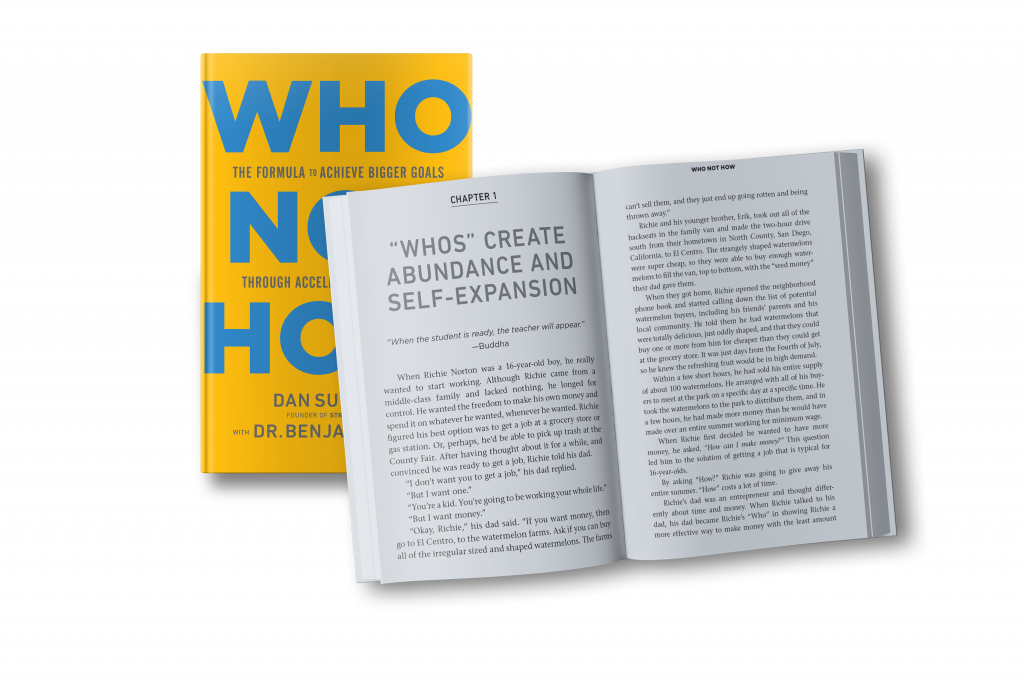
“It takes wisdom to recognize that 1) other people are more than capable enough to handle much of the Hows, and 2) that your efforts and contribution (your “Hows”) should be focused exclusively where your greatest passion and impact are.” – Dan Sullivan
The opening words of Dan Sullivan’s book, Who Not How, focus on Michael Jordan – arguably the greatest basketball player of all time. Sullivan absolutely highlights the amazing talent that Jordan had. Yet, without taking any of the shine away from Jordan, he also focuses our attention on the fact that Jordan’s overall success in the NBA resulted from at least a couple of other factors that were beyond Michael’s talent. A major change that led to greater success for Jordan AND the Bulls was the addition of Scottie Pippen. The Bulls needed additional talent, not just Jordan. A second major advantage that Jordan had was his personal strength and conditioning coach. Tim Grover walked alongside Jordan for much of his career.
Jordan had immense personal skill and success. Yet, he still gathered an army around himself. He had the best coaches and trainers and support. He also strived to have an amazing team around him that brought additional skills and talents. Jordan knew he could not win by himself.
Who Not How is a collaboration between Dan Sullivan, founder of Strategic Coach – the leading entrepreneurial coaching program and Benjamin Hardy, an organizational psychologist and best-selling author. Sullivan has spent years teaching people that rather than asking “how can I accomplish this” we should ask “who can help me achieve this?”
For me, this is an expansion of the leadership concept that says we should spend more time developing our strengths than trying to repair or strengthen our weaknesses. None of us can do everything equally well…or even passably well. However, we can gather those around us that have strengths and gifts that we do not possess. We can build teams that can accomplish so much more than we ever would on our own strength.
Readers will be encouraged to consider how they can use the free time they will free up as they bring in others to complete the tasks that are outside of their wheelhouse, comfort zone, or basic skill set. Annually, we could be talking about thousands of hours. Additionally, our plans and goals no longer need to be limited based on our own skills and talents. We will be building teams that can advance our calling far beyond what we could ever imagine if left to our own devices.
